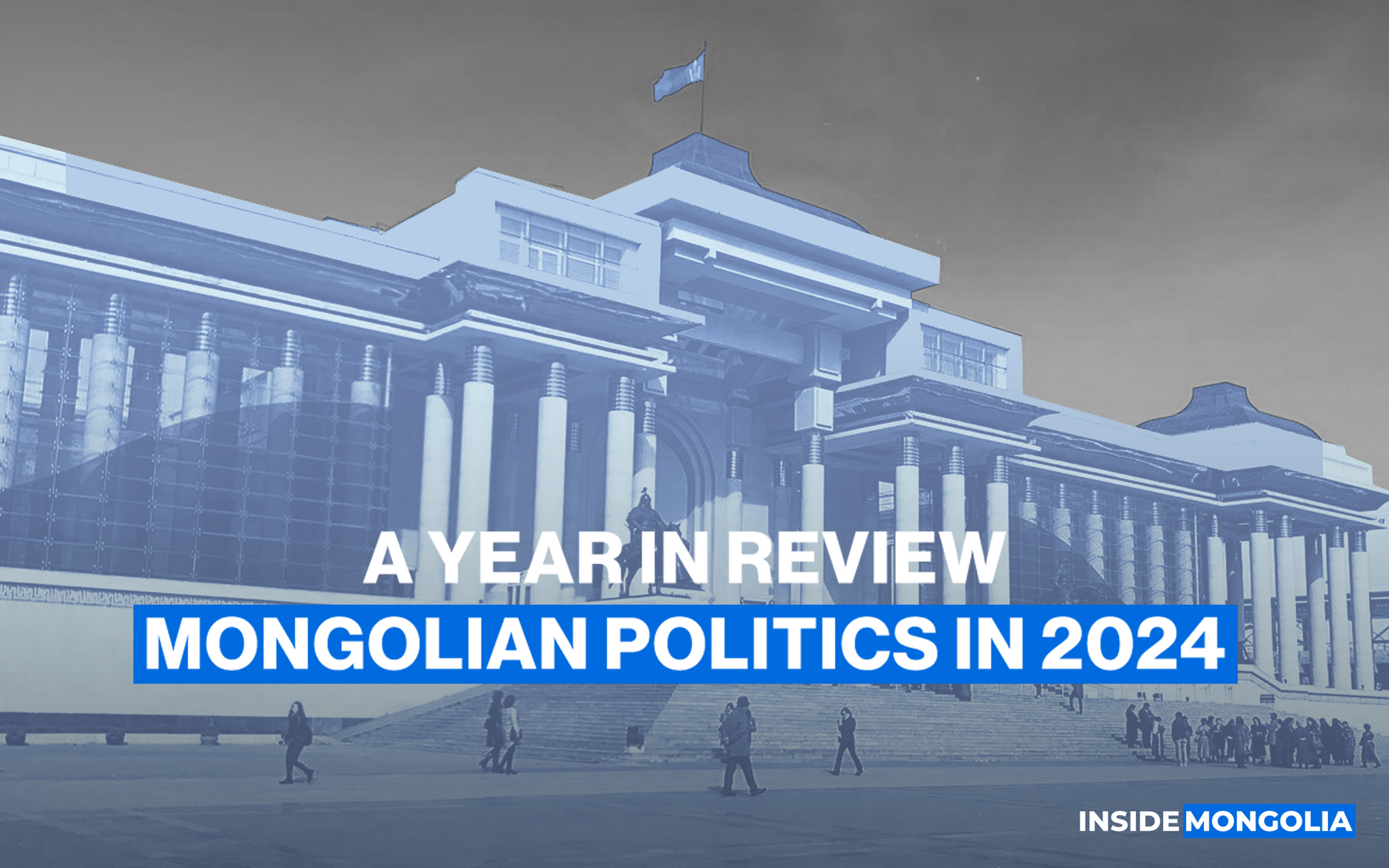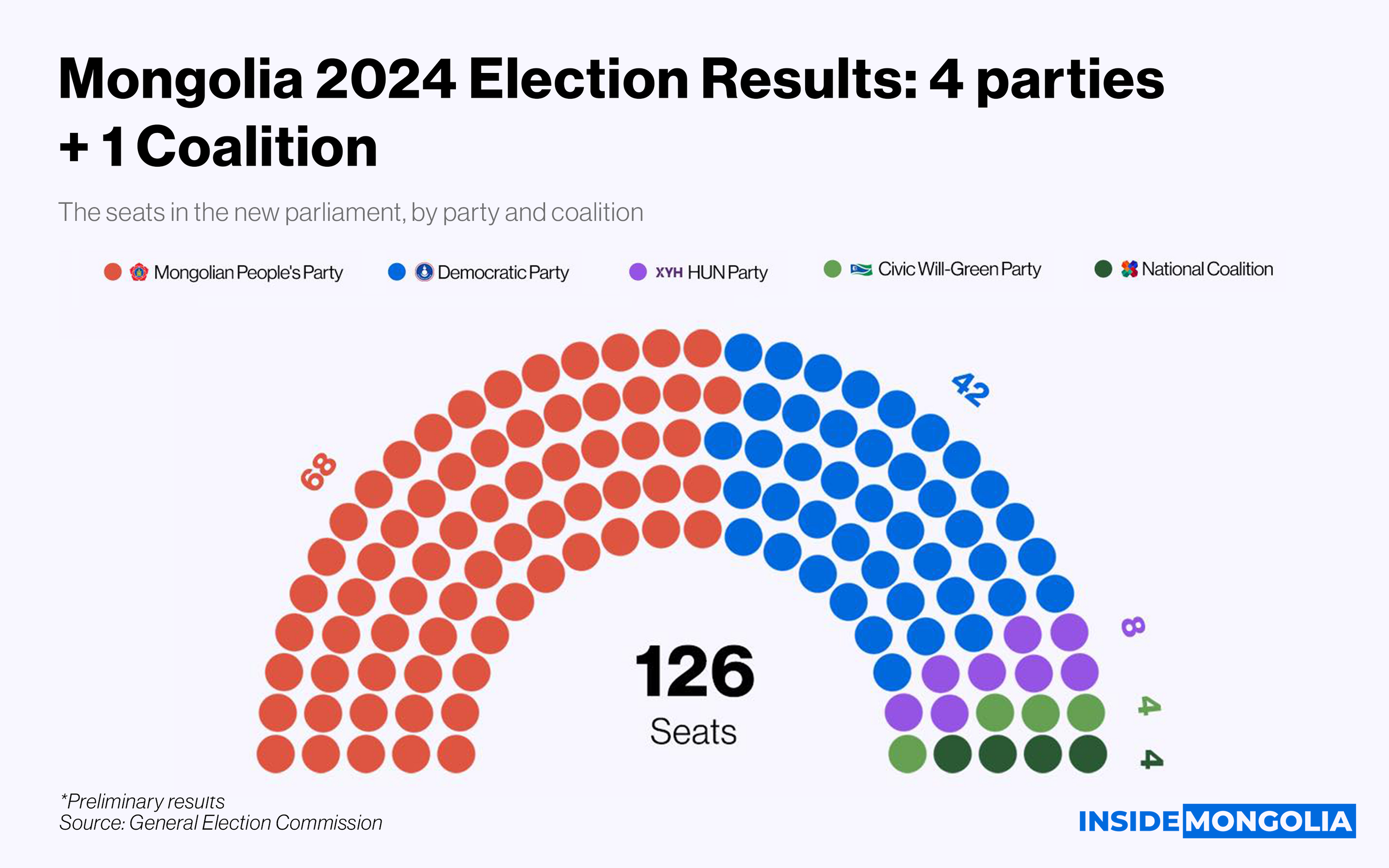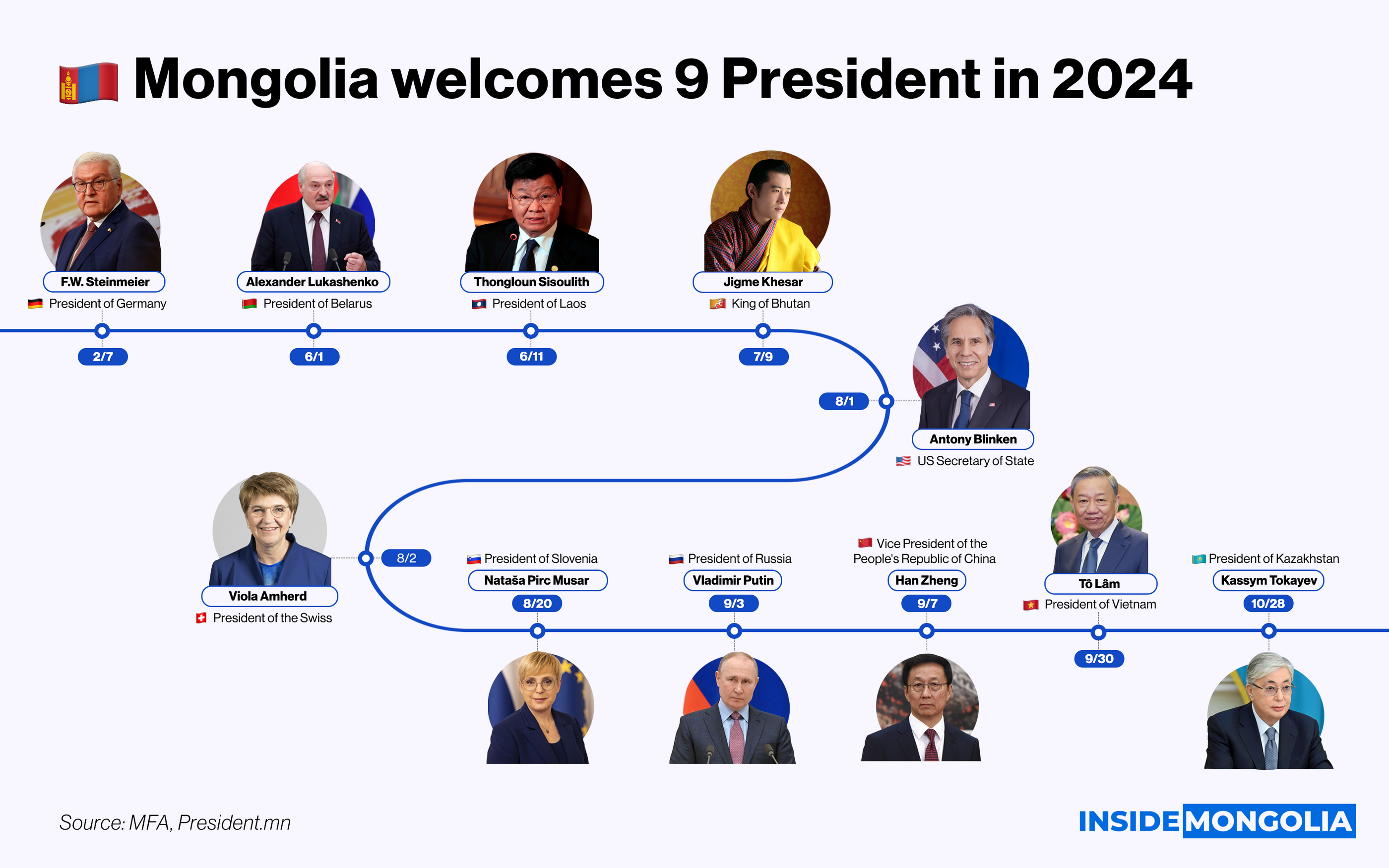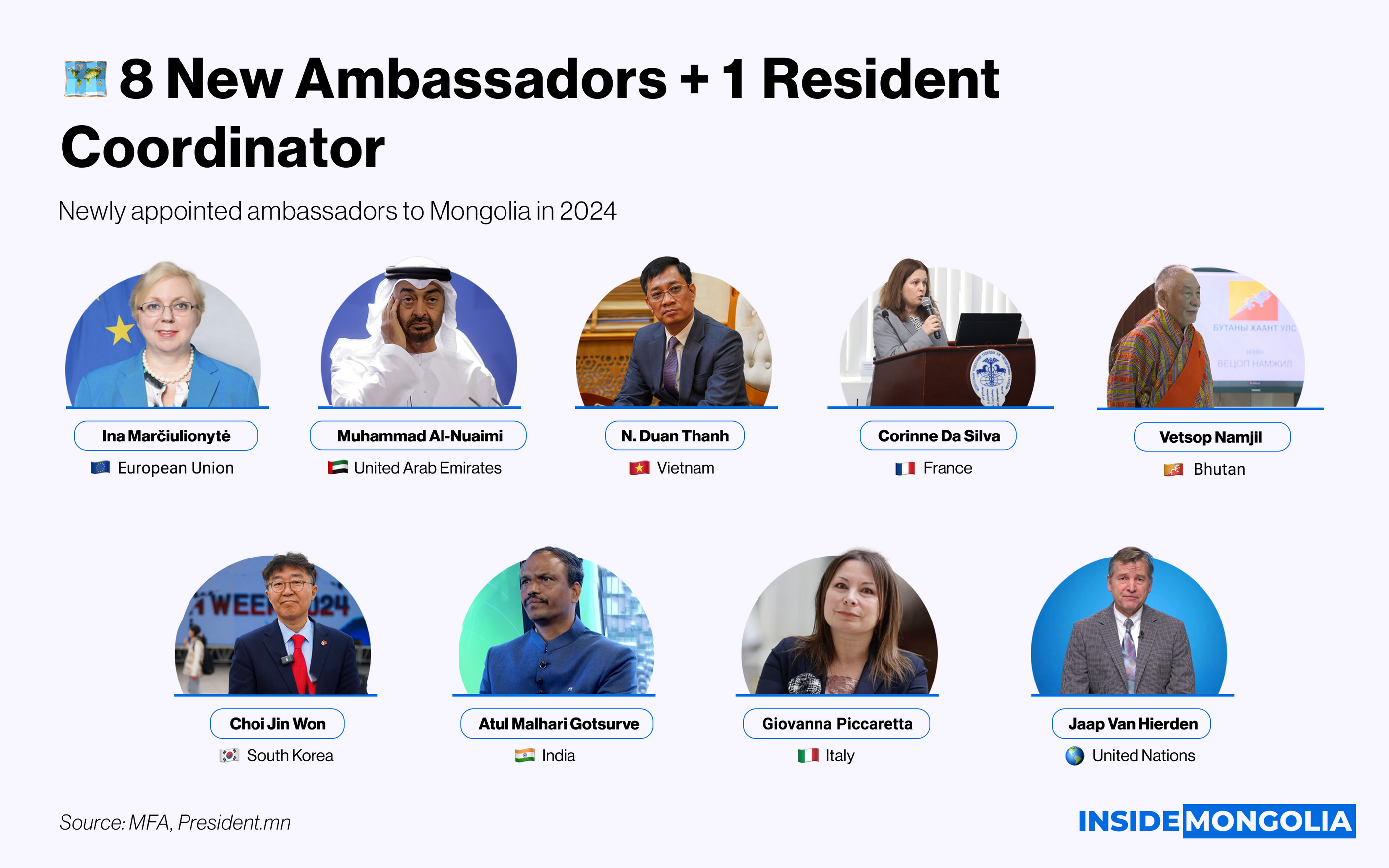Inside Mongolian Politics: Major Events of 2024

As Mongolia navigates a politically dynamic 2024, five key developments define a year marked by legislative challenges, strategic partnerships, and an evolving global role. These events, ranging from historic elections to significant foreign policy moves, shape a transformative year for the nation.
👨💼 Parliamentary Expansion and a Historic Veto

This year, Mongolia holds historic parliamentary elections, expanding the legislative body to 126 seats for the first time. The newly elected Parliament approves the 2025 state budget amid public scrutiny. However, in a rare move, the President issues a full veto just 11 days later, sending the budget back for revision and sparking debates about the balance of power in Mongolia's political system.
- 🏃♂️ Outstanding Escape of the Year: The Prime Minister, at a critical moment, embarks on diplomatic visits to China, Saudi Arabia, and the UAE. His absence from budget discussions draws criticism, making it the ‘outstanding escape’ of 2024.
👔 Diplomatic Milestones in Foreign Relations

Mongolia hosts an unprecedented number of high-level visits in 2024, welcoming leaders from 12 countries, including the first-ever visit from the head of an international organization. Notable firsts include visits from the Presidents of Slovenia and Switzerland, along with the first female President of the European Bank for Reconstruction and Development.
However, this year also presents contrasting narratives in diplomacy. Due to the parliamentary elections, high-level visits are limited. Before the elections, the German President and the UK's Foreign Secretary visit, while the Presidents of Belarus and Laos arrive during the election month. This timing raises the question: why are these visits scheduled during such a politically sensitive time?
- ➕ More Strategic Partners: In addition to these diplomatic shifts, Mongolia strengthens ties with Germany and Kazakhstan through strategic partnerships, marking a first with both an EU member and a Central Asian nation. However, the visit of Russia’s President Vladimir Putin raises concerns, reflecting the geopolitical complexities Mongolia faces.
🆕 A New Diplomatic Corps

Interestingly, Mongolia receives 13 new ambassadors in 2024, including representatives to France, Italy, South Korea, and India. Furthermore, 8 Non-Resident Ambassadors take up posts in countries such as Pakistan and the Netherlands. These appointments collectively reflect a strengthened focus on global engagement and diplomacy.
Finally, many Mongolians hope that 2024 will be a turning point in Mongolian politics. Even as the opposition enters parliament, they assemble with the same old rulers, and government power still overrules parliament. Looking ahead, politicians lay the groundwork for the 2027 presidential election, amid speculation of potential upheaval, including a possible shake-up of the prime ministerial role in 2025. The trend feels familiar, the strategy all too cliché.
Comment